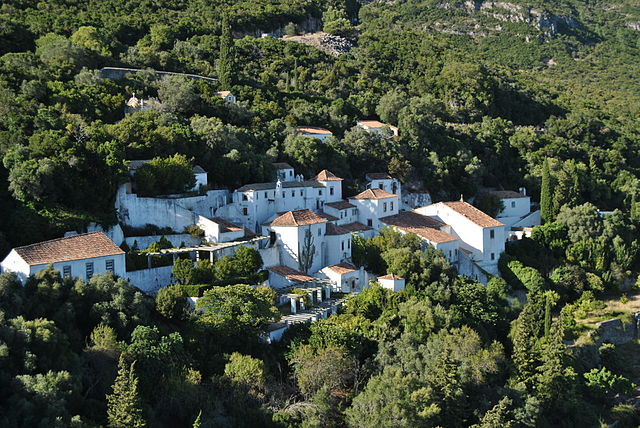34th Prospective Meeting of Arrábida 08/09/2025

From 8 to 11 September 2025 takes place the 34th Prospective Meeting at Convent of Arrábida. The Prospective Meetings of Arrábida run since 1992 and aim at debating and clarifying issues considered fundamental for the future of Portuguese society and Europe, seeking the direct involvement of the most relevant actors together with specialists, national and foreign. The Prospective Meetings are working meetings and their very continuity constitutes today a heritage of dialogue and mutual knowledge, rare in Portuguese society.
This year's meeting is dedicated to the prospective analysis of the conditions for promoting knowledge as a critical factor for competitiveness and for tackling the emerging societal challenges at global level in the growing "complex of uncertainty" that we are witnessing at international level. The debate includes four volatile and interactive strands:
- The accelerated technological change in which we live, in a context of growing abundance of knowledge and, above all, information, with the exponential growth of scientific publications on a global scale, including a new relevance of science produced and disseminated in China. It has stimulated new initiatives in "technology monitoring", "data analytics" and "search" for "reliable knowledge", along with the need for new assessment and funding mechanisms, as well as more public and private investment in many regions of the globe (including Europe, Latin America and Africa), naturally for fundamental science, disruptive innovation and collaborative science/innovation;
- The growing fragmentation of multilateralism (i.e. the change of course from globalization to regionalization), recently reinforced by recent US policies, together with the defence and security of populations being considered at a political level as the priority factor for the competitiveness of regions (particularly and unprecedentedly in Europe). It includes a discussion on the concept of strategic autonomy, with the growing relevance of space and information systems for defense and security, including, of course, energy and environmental security, public health, civil protection and population security, as well as autonomy in the production of industrial and agri-food goods. But it also includes an in-depth discussion on "science and global geopolitics" and how Europe, Latin America and Africa, among others, will relate to the US and China in the coming years;
- The accelerated social and political polarization of societies, together with a relative weakening of democracies and the emergence of "me first" behaviors in an increasingly growing and changing demographic framework. It includes the need to prioritize young adults and better understand their ambitions, along with the challenges of attracting and retaining talented young people for science and innovation activities and the complexity of securing better jobs and scientific careers;
- The emerging societal challenges associated with mental health, unequal access to innovative biomedical treatments (especially for "non-curable diseases"), as well as the destabilizing planetary pressures and inequalities of the Anthropocene, together with emerging environmental health challenges and the One-Health concept, as well as the search for comprehensive social transformations to alleviate these pressures in a growing demographic scenario on a global scale.
In an international context undergoing rapid change as a result of the growing uncertainties arising from the new US administration, the growing threats to Europe and its values, more than 3 years after the invasion of Ukraine by Russia and the situation in the Middle East, the debate will be geared towards discussing the conditions for stimulating "scientific activism" and scientific and technological cooperation at international level, together with the development of public policies and business strategies. It includes considering the emergence of new positions on "Research Security" in the US and Europe.
This meeting is organized with the support of Fundação para a Ciência e a Tecnologia through the project LA/P/0083/2020.



